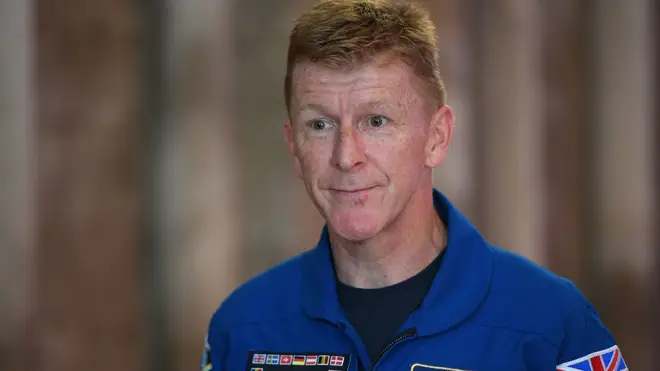
Ali Miraj 6pm - 9pm
14 December 2021, 17:04

The first British astronaut to walk in space told MPs that scientists were shocked by the ‘recklessness’ of Russia in destroying a satellite.
The growing amount of space debris orbiting the earth risks a “catastrophic impact” with the International Space Station, Major Tim Peake has warned.
Major Peake, the first British astronaut to walk in space, said communications satellites vital to many aspects of modern life were all potentially in jeopardy from the “hundreds of thousands” of small pieces of debris travelling “exceptionally fast”.
Giving evidence to the Commons Defence Committee, he said the space community had been “shocked” by the “recklessness” of Russia in test firing a missile to destroy a defunct satellite creating huge amounts of additional debris.
“It is in an area where it will impact for a number of years, various different orbits and also launch capabilities,” he said.
Major Peake, who spent six months in the International Space Station in 2015-16, said that while radar could spot larger pieces of debris allowing the station to manoeuvre to avoid them, it could not pick up those under 5cm.
At the same time, the space station “shielding” only offered a maximum of 2cm protection.
“We have a black zone where we can’t see it and won’t see it coming and it could be catastrophic to the space station,” he said.
“The more pieces of debris that are introduced into a conflicting orbit, then the greater the risk there is an impact that could be catastrophic. That is not just, of course, to the space station.
“Low earth orbit is becoming more utilised, by commercial satellites, by mega constellations, it will be part of our broadband, it is part of our weather forecasting, it is part of earth observation satellites.
A busy day in Parliament but still time to welcome my old friend Tim Peake to the Defence Committee to speak about Space Security.2.30pm Today pic.twitter.com/AT84vA3bIq
— Tobias Ellwood MP (@Tobias_Ellwood) December 14, 2021
“We will be utilising it even greater in future so debris in those orbits is of great concerns.”
Major Peake said the Russian missile test showed that the 1967 international Outer Space Treaty – which was supposed to prevent the proliferation of debris – was no longer “fit for purpose”.
However, he said that negotiating a replacement under the auspices of the United Nations would not be easy at a time when the United States, Russia and China were pursuing competing ambitions in space.
“It does make it more difficult to establish international norms and behaviours as we move forward into areas where space is becoming ever more congested and contested,” he said.
“I think we are going to find ourselves in increasingly difficult territory as we move forward where different interpretations of norms and behaviours are going to cause friction and tension and it is going to require a lot of diplomacy in order to ensure we use space responsibly.”
Major Peake said it was “likely” that he would return to space for a second mission with the European Space Agency, in either 2024 or 2025.
He called for the appointment of a UK minister for space with a seat in the Cabinet to lead and co-ordinate the Government’s efforts across Whitehall.
“That would send not only a good message to industry and academia and the scientific community but that would also send a very strong message when we collaborate with our international partners for example at the council of ministers for the European Space Agency to have a minister of space from the UK attending,” he said.